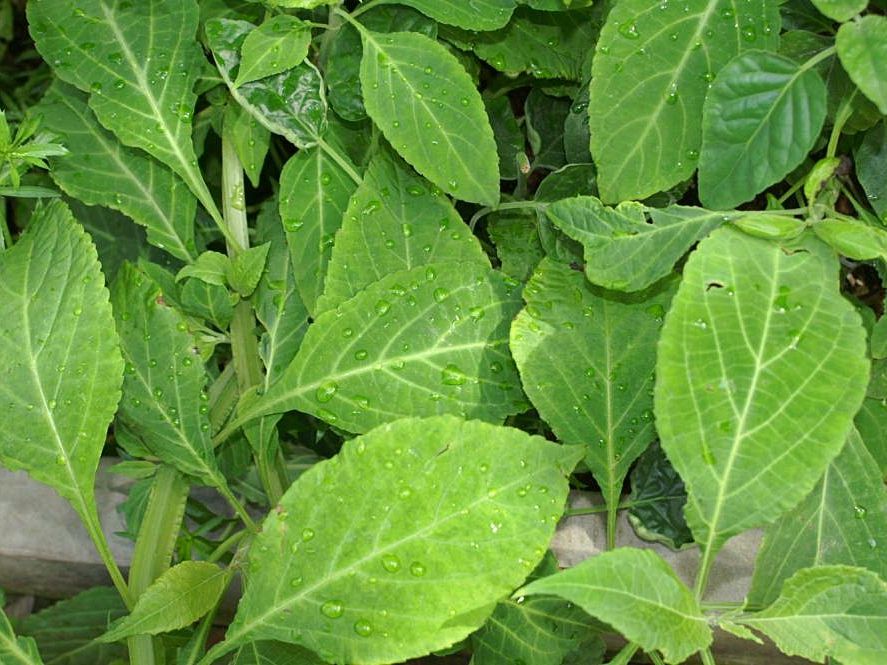Having pets at home and not caring for them is a major injustice to them. Especially in cases of dogs. They are very sensitive when it comes to feeding them. Secondly, some certain herbs and plants are essential for dogs such as Salvia.
Nothing is surprising with the fact that the Salvia plant is being given to animals these days for some other reason. Before learning about its safety and uses for dogs dive into some brief understanding about Salvia.
What Should You Know About Salvia Before Giving It To Dogs?
Salvia Divinorum comes from the sage family. It is sowed in the Southern areas of Mexico and is harvested all year round. It is a form of a drug that is proven to produce visual hallucinations that often imitate that of LSD. There is still a controversy stating its safety for today.
In some parts of the world, Salvia is sold legally whereas in some corners of the world its use is still a dilemma. Not everyone sells it in the gardening trade and its business requires legal authority and verification. As for dogs Salvia and its use are still under research because various results are inferred.
How Is It Proved That Salvia Is Safe For Dogs?
As mentioned earlier the safety of salvia depends upon the dosage. According to the drug and pharmacokinetics, it is said that Salvia Divinorum is safe for use if used within 200 to 500 mcg. Previously salvia was not available under lethal dosage everywhere but now since it has profound uses its legal dosage is Available over the counter. Pets mostly dogs are often given Salvia drops as it is beneficial for bones, decreases pain and ailments.
Reports suggest that an overdose of Salvia in dogs had shown classical signs of hallucinations and increased hyperactivity in dogs. The hyperactivity here refers to being “high”. Nevertheless, it is nothing to worry about!
How Is Salvia Given To Dogs In Normal Practices?
The only route of administration allowed for Salvia is through oral means. It is available as a liquid extract. The plant is dried and grated in green leaves.
Traditionally users chew it or drink the extract. Some people have also been seen to smoke the dried leaves.
- Just like how Salvia Divinorum has multiple uses there is another form of Sage known as Salvia officinalis that is used for skin lesions and infections. It is proven through research and systematic reviews that Salvia officinalis is a powerful agent of bacteria that infect the skin of dogs. The most common skin disease that is suspected on dogs is atopic Canine Dermatitis. Topical use of Salvia is safe on dogs and it clears the wound that manifests on the skin surface of dogs.
- The reason why Sage (Salvia) is safe for dogs is that it has beneficial effects on their body. Regular use of Salvia in your dog’s meal is great because it builds their immune system. The better the immunity the more is the capability to fight against internal diseases and viruses.
- The presence of Vitamin A, E, and K in Salvia helps support the bones, eyes, and skin. The reason why some dogs are used for inspection purposes is that they are fed with Sage in their meals which improves their eyesight.
- If you want complete nourishment for your dog which is highly rich in Zinc, potassium, calcium, and phosphorus then add a few drops of Salvia in their meals thrice a day. It improves mineral deficiency and is an energy booster for dogs.
Therapeutic Uses Of Salvia After Knowing Its Safety For Dogs
Researchers have concluded that Salvia’s usage is safe only when taken in the right dosage. Any exceeding dose can be detrimental and can have an adverse effect. It is used for
Diarrhea
Runny, watery diarrhea is well controlled by a small dose of Salvia divinorum. The best route of administration is via the mouth.
Headache
Since Salvia is a recreational drug that produces hallucinations, it acts on the brain vigorously. It slows down the brain activity and soothes it hence providing relief from headaches.
Relief From Joint Pain
Salvia Divinorum is proven to alleviate joint pain by acting on the pain receptors present in the joints.
Stomach Problems
Since dogs either pets or stray dogs are very prone to stomach problems. Salvia releases bloating and regulates bowel movements.
Kidney maintenance
Regular usage of Salvia is responsible for the regulation of urine production and kidney filtration.
How To Feed Salvia To Dogs?
For meals
Dry salvia leaves completely and then shred them into fine pieces. The freshly dried salvia plant is the best. Mix the leaves into your dog’s food every day.
For topical application
Boil some Salvia leaves with Epsom salt. When the leaves change their color add the mixture to the bathtub and keep your doggy in it. Epsom salt baths with Salvia leaves are perfect for skin allergies and hence are declared safe for dogs.
How Can One Know That Their Dog Is Endangered With Salvia?
Salvia is effective for headaches, joints, and the gut; it also has negative or reverse effects. If you discover the following signs in your dog then it is a clear classical sign that either your dog has received an overdose of Salvia or it is not suitable for your dog:
- Allergic response or reactions such as rashes and itching on overall body
- Irrelevant or unusual activity which is very rarely seen
- Excessive sleeping
- Psychosis that becomes out of control
- High-grade fever
The Bottom line
Cannabis, Hibiscus, Salvia are some of the common plant species that are used for medicinal purposes. However, their use is limited to legal doses and if you see any signs of allergies then you should seek medical assistance immediately. There are antidotes to them that can reverse their reactions. When dogs are kept as pets they need to be monitored very precisely. Even if accidentally your furry friend ingests a Salvia more than required then take it to the nearby vet as soon as possible to prevent any mishap from occurring.
















